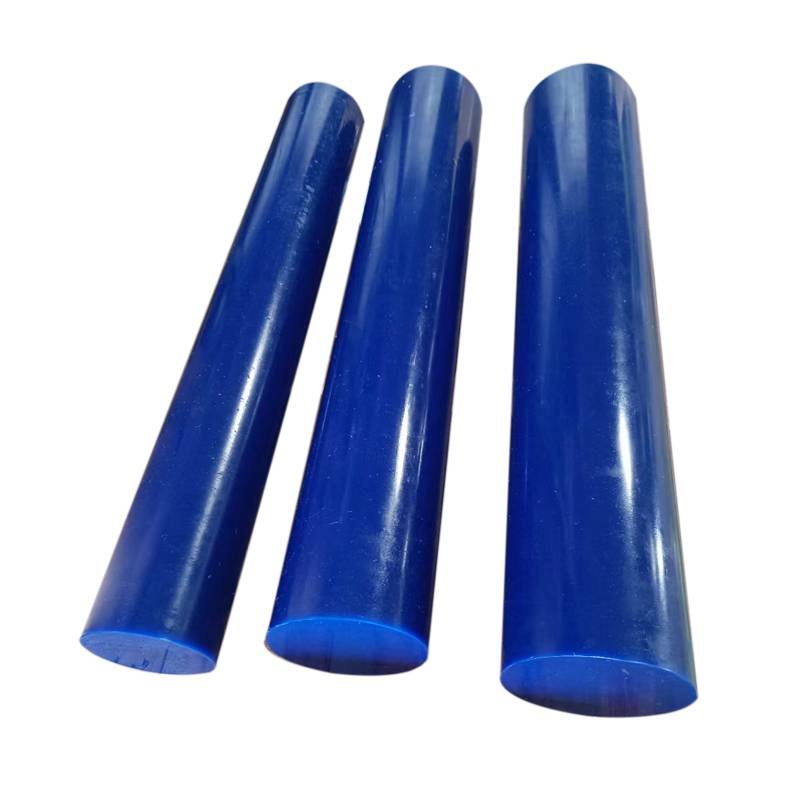As industries increasingly seek eco-friendly solutions, the versatility and sustainability of polyurethane (PU) have made it a valuable material in manufacturing. Beyond its strength and flexibility, polyurethane offers unique environmental benefits, from reducing waste to lowering energy consumption. In this article, we’ll explore how polyurethane can support sustainable manufacturing practices and contribute to a healthier planet.

1. Longevity and Durability Reduce Waste
Polyurethane’s durability is one of its standout qualities. Its ability to resist wear, abrasion, and chemical exposure extends the lifespan of products and components, meaning they need to be replaced less often. This durability leads to fewer products being discarded, reducing the overall waste generated by manufacturing processes.
- Applications: Polyurethane’s longevity is ideal for applications requiring frequent or continuous use, such as industrial equipment, automotive parts, and protective coatings.
- Impact: By reducing the frequency of replacements, polyurethane helps decrease the volume of waste, supporting waste reduction goals in various industries.
Why It Matters: Long-lasting polyurethane components contribute to sustainability by minimizing the need for replacements and reducing the demand on resources required to produce new parts.
2. Energy-Efficient Production Process
Compared to other materials, the production of polyurethane can be relatively energy-efficient. Its production process often requires less energy than metals or other synthetic materials, helping to reduce greenhouse gas emissions and lower the carbon footprint of manufacturing.
- Applications: Polyurethane is used in a variety of forms—from insulation foams to molded parts—in energy-efficient manufacturing processes.
- Impact: Lower energy consumption means a smaller carbon footprint, contributing to a more sustainable manufacturing process.
Why It Matters: Using materials that require less energy to produce directly supports efforts to reduce emissions and conserve resources, aligning with sustainable development goals.
3. Excellent Insulation Reduces Energy Demand
Polyurethane foam is one of the most effective insulation materials available, helping to reduce energy consumption in buildings, refrigeration, and industrial processes. As insulation, polyurethane retains heat in colder climates and cool air in warmer climates, significantly reducing heating and cooling energy demands.
- Applications: PU insulation is commonly used in building construction, refrigeration systems, and HVAC units to enhance energy efficiency.
- Impact: By improving insulation efficiency, polyurethane reduces the energy required for heating and cooling, which contributes to lower operational energy costs and emissions.
Why It Matters: Enhanced insulation capabilities directly support energy-saving goals and help reduce the environmental impact of industrial and commercial buildings.
4. Supports Lightweighting in Manufacturing
Polyurethane’s high strength-to-weight ratio makes it a popular choice for lightweighting applications in industries such as automotive and aerospace. Replacing heavier materials with polyurethane not only maintains product performance but also reduces fuel consumption in transportation, leading to lower emissions.
- Applications: In automotive parts and airplane components, polyurethane helps achieve lightweight designs that improve fuel efficiency.
- Impact: Lightweighting can result in a substantial reduction in energy usage and emissions over the product lifecycle.
Why It Matters: Reducing the weight of vehicles and equipment contributes to fuel efficiency, supporting global efforts to reduce greenhouse gas emissions and dependency on fossil fuels.
5. Recyclability and Circularity in Polyurethane Production
While polyurethane was traditionally difficult to recycle, advancements in recycling technology are making it increasingly feasible to recover and repurpose PU materials. Mechanical recycling, chemical recycling, and repurposing processes allow polyurethane products to be broken down and reused, promoting a more circular approach in manufacturing.
- Applications: Recycling of polyurethane can be applied in automotive parts, insulation materials, and industrial components, where recycled PU is repurposed into new products.
- Impact: By facilitating reuse and recycling, polyurethane reduces the need for virgin materials and minimizes environmental impact.
Why It Matters: The recyclability of polyurethane is crucial to promoting sustainable resource management and reducing the need for new raw materials, thereby lowering the environmental footprint.
6. Reduces Dependence on Nonrenewable Resources
Polyurethane production has increasingly incorporated bio-based polyols, derived from renewable sources like soybeans and castor oil. Using bio-based materials in polyurethane production helps reduce reliance on fossil fuels, making the material more eco-friendly and supporting renewable resource industries.
- Applications: Bio-based polyurethane can be found in construction, automotive, and consumer goods industries, offering sustainable alternatives to traditional PU products.
- Impact: Utilizing renewable resources in PU manufacturing decreases the environmental impact and promotes sustainable material sourcing.
Why It Matters: Incorporating bio-based materials aligns with sustainable production practices, creating a pathway for reducing dependency on nonrenewable resources and supporting greener supply chains.
7. Enhanced Safety and Reduced Emissions
Polyurethane coatings and sealants can be applied to reduce volatile organic compounds (VOCs) in certain manufacturing processes. Additionally, advancements in PU manufacturing technology allow for the development of low-VOC products that contribute to a safer work environment and cleaner air quality.
- Applications: Low-VOC polyurethane coatings are used in automotive manufacturing, construction, and industrial equipment to reduce emissions and improve air quality.
- Impact: By choosing low-emission materials, industries can reduce the negative environmental effects associated with VOCs and protect workers’ health.
Why It Matters: Using low-emission polyurethane products supports safer work environments and helps manufacturers meet regulatory standards for emissions, contributing to a healthier environment and sustainable practices.

Polyurethane Solutions at Pengde Rubber Plastic Co., Ltd.
At Pengde Rubber Plastic Co., Ltd., we are committed to offering environmentally friendly polyurethane products that align with sustainable manufacturing practices. Our range includes:
- Polyurethane Rubber Sheets: Durable and abrasion-resistant for reduced waste in industrial applications.
- PU Squeegees: Long-lasting and recyclable options for screen printing.
- TPU Belts: Lightweight and highly durable, ideal for reducing energy consumption in conveyor systems.
For more information on our sustainable polyurethane solutions, contact us at pengde2@pengde-pu.com. Our team is ready to assist you in selecting eco-friendly options that support both operational efficiency and environmental goals.


